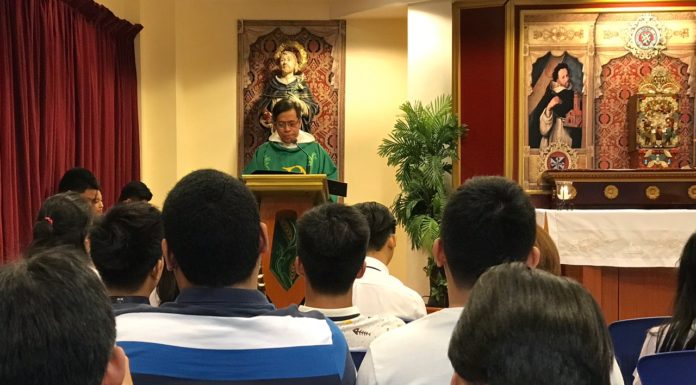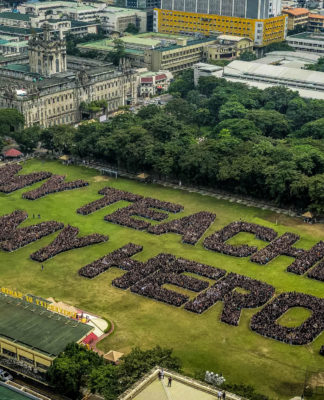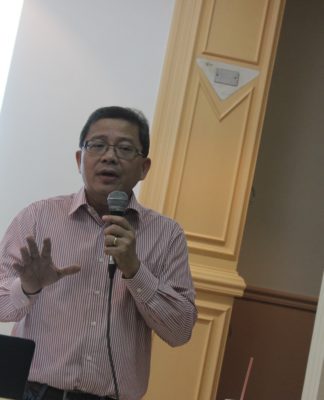THE GOVERNMENT’S failure to perform its duty to serve the public interest and to protect people’s rights prompts the media to take an adversarial role, Philippine Daily Inquirer Publisher Isagani Yambot said in a forum.
“When the personal and private interests of the government prevail over the public interest, the press is one of the few institutions that are left to protect the public interest,” Yambot said in the forum, Media Responsibility in Government Advocacies and Campaigns: Media Effects and Influences on Philippine Government Strategies last Aug. 7 at the Tan Yan Kee Audio-Visual Room.
“To play the watchdog role and to provide a check on the government is to play the adversarial role by the media,” he added.
Yambot said that the press, a term which has been expanded to include all media, serves as an independent monitor of power that keeps government officials under constant surveillance.
However, the publisher clarified that playing an adversarial role does not mean constantly attacking and criticizing the government and its policies. Instead, the media have to keep a “critical, argumentative and contentious” relationship with government.
He reiterated his stand on the adversarial role of the media when he illustrated cases of “managing and manipulating information by the government.”
“We have seen how Mrs. Arroyo has blocked the access of information to the press and to legislative bodies such as the Senate, which should be made available to the people. We have seen how the excuse of executive privilege has been used to prevent disclosure of information. And we have seen Cabinet members virtually gagged so they could not talk on projects and transactions suspected of being tainted with irregularities,” Yambot said.
Media’s effects
Assistant press secretary Romeo Montenegro said that the “dynamic and adversarial” reporting of the media affect the government’s performance.
“The media that is (sic) sometimes adversarial scrutinizes every single movement of government policies and programs,” he said. “It has the ability to create public consciousness that will either support or decline (sic) government programs which in effect could propel or shut down government strategies.”
The way media present news is also critical to how the public views government policies, he said.
“Media has (sic) the ability to provide (messages) and to shape public opinion. The public uses the (media) as a mechanism to understand things whether their opinion will be positive or negative,” Montenegro said.
To compensate for the effects of the media’s adversarial role and to win the public’s trust, Montenegro acknowledged that the government must have “consistent projects and programs and uniformity of messages on issues.”


















